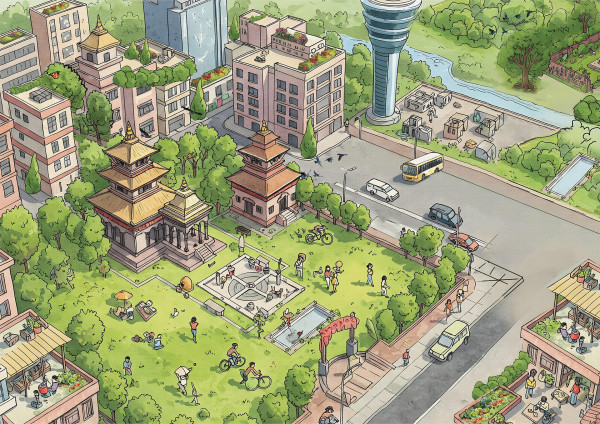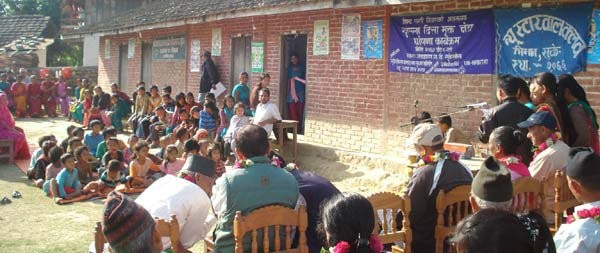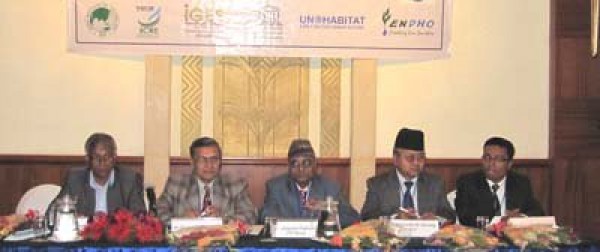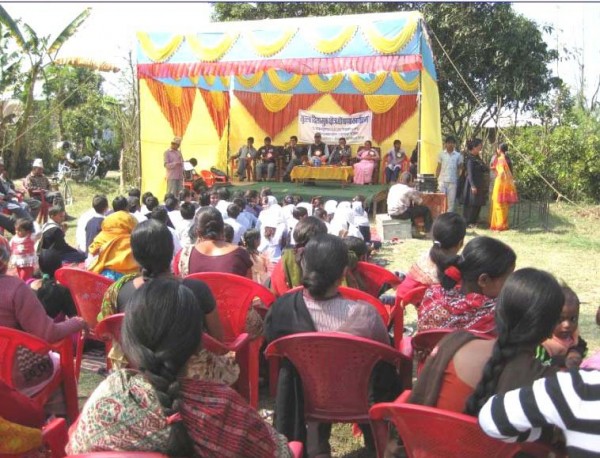UN Habitat supporting EcoSan Toilet Promotional Campaign in Nagarkot
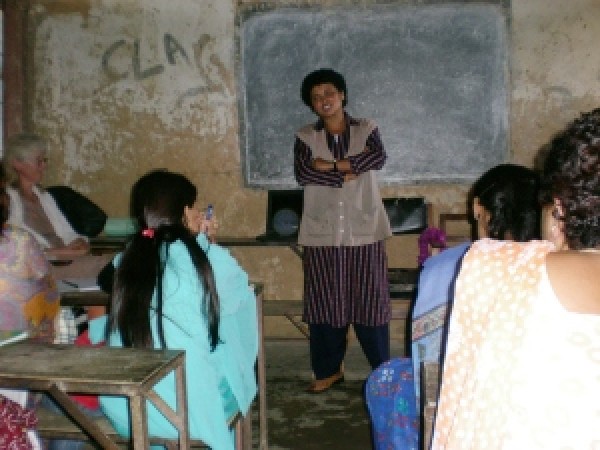
Ms. Nanu Maiya Giri, principal of Chuna Devi Lower Secondary School appreciates the effort of her community people proudly. She claims that it's their dedication that turned the catchment area of school into a total sanitation zone.
According to her, after prolong dedication the Magar tole, Danda Gaunt tole, Kuwa Pani tole, Ghising tole and Gairi Gaun of Nagarkot Village Development Committee (VDC) were declared Open Defecation Free (ODF) on 25 December, 2010 in Nagarkot.
Earlier to this declaration, villagers were not aware on health and hygiene, and open defecation used to be rampant. After participating in a training programme on School Led Total Sanitation (SLTS), organized by Department of Water Supply and Sewerage (DWSS) and UN Habitat, Nanu Maiya realized the importance of toilet in the surrounding communities of Chuna Devi School. She, thus, shared the knowledge gained from the training with other teaching staffs and her students at school, who later supported her in driving SLTS campaign in and around the school catchment.
The campaign conducted various activities including door to door visit, community orientation, and community consultation in school catchment area covering 278 household that enhanced community awareness on sanitation to the large. It helped the campaigners to convince many of community people, who expressed their interest to have toilet of their own and requested for necessary support.
At the meantime, UN Habitat, Nepal Node for Sustainable Sanitation (NNSS) and DWSS came forward to support villagers to construct EcoSan toilets. Altogether 50 units of wet EcoSan toilets were constructed in the village with this support. The extension of these facilities benefited more than 250 inhabitants, who didn't have toilet facility earlier.
Similarly, two units of urine collection system were installed in the village, one at Chuna Devi Lower Secondary School and another at Centre for Human Resource Development Unit (CHRDU), DWSS for demonstration of urine application. The school collects 4-5 thousand litre urine every month, while around 800 litre urine is collected from the system at CHRDU.
The villagers, who had only heard about urine application, started harvesting urine and applying in agriculture to supplement nitrogenous requirement of their cultivation after these constructions. The faeces will also be utilized as a soil conditioner. These practices helped community people decrease their dependency on chemical fertilizer; taught them the way to utilize human excreta; and helped them to grow organic food. Moreover, it brought behavioral change among villagers; decreased open defecation remarkably and improved health condition by improving environmental sanitation in the communities.
It soon impressed other community people, who also started demanding for support to construct toilet at their homes. Responding their demand, DWSS provided necessary support to the villagers. Additional five units of EcoSan toilet were constructed with this support, while remaining 20 units are under construction.
The success that the campaign gained and the improvement it brought in sanitation situation in these communities motivated Nanu Maiya and other campaigners to increase their dedication in the campaign. They are now making a broad vision to declare Nagarkot VDC as a whole ODF. Therefore, they have recently expanded their catchment area to Pipalbot and Lamatole. They are constructing 40 units of EcoSan toilets in these new communities in their first phase and planning to expand activities gradually.



